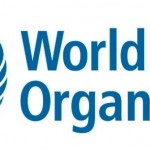 The World Health Organization (WHO) recently urged health professionals to strengthen their malaria elimination strategy because approximately 3.2 billion people are still considered at risk for contracting malaria.
The World Health Organization (WHO) recently urged health professionals to strengthen their malaria elimination strategy because approximately 3.2 billion people are still considered at risk for contracting malaria.
The WHO said that malaria control and elimination may be attained by targeting malarial parasites that are less fatal. Even though these parasites are less deadly, they are now responsible for the high disease burden.
Approximately 3.2 billion people still live in regions with high risks for malaria infections. In order to achieve the goal of 90 percent reduction in disease and deaths as well as complete elimination in 35 countries by the year 2030, the global agenda must prioritize malaria.
“Our efforts so far focused on the most deadly P. falciparum malaria,” WHO Regional Director Poonam Khetrapal Singh said. “We need to now broaden our strategy to include targeted interventions for P. vivax malaria, which is contributing to a large proportion of global malaria burden, mainly in the WHO South-East Asia Region.
“We need targeted strategies for P. vivax malaria which presents distinct challenges for control and elimination compared to P. falciparum,” Khetrapol Singh said. “It is proving to be an extremely difficult parasite as it does not readily respond to the existing control measures and has the ability to remain hidden and beyond the reach of the currently available diagnostic tools and medication.”
Source: Vaccine News daily

















